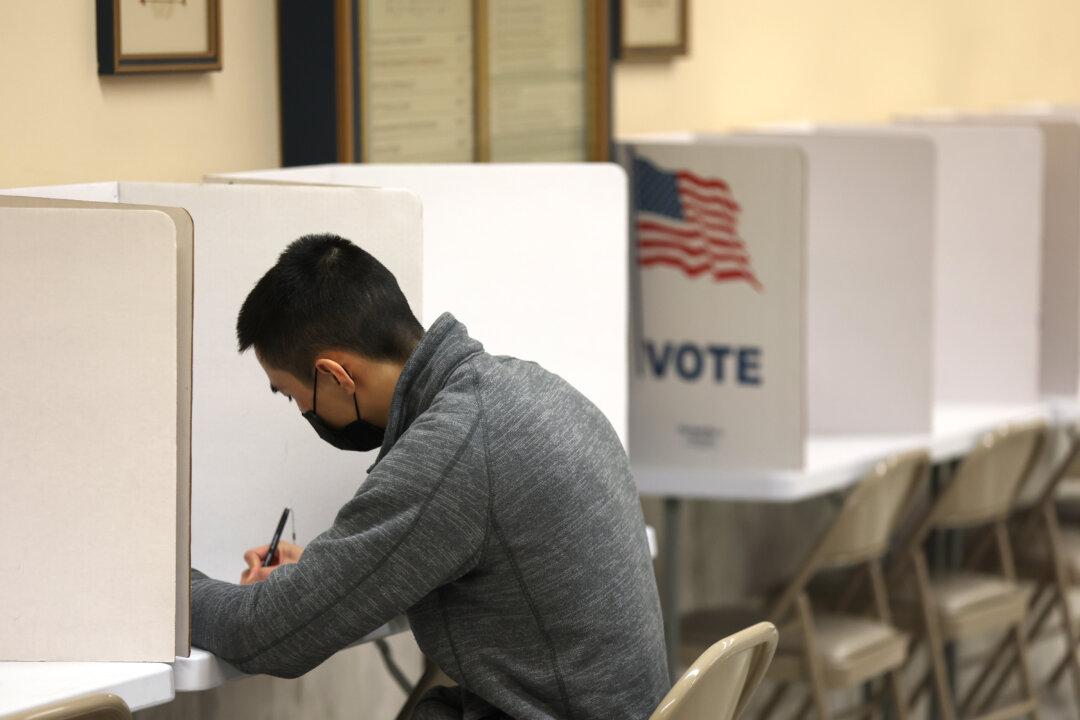
A voter fills out his ballot at a polling station at San Francisco City Hall on June 7, 2022. Justin Sullivan/Getty Images
Commentary
California is once again leading the way, showing us the dark, dystopian post-U.S. future that awaits us if the left remains in power.
